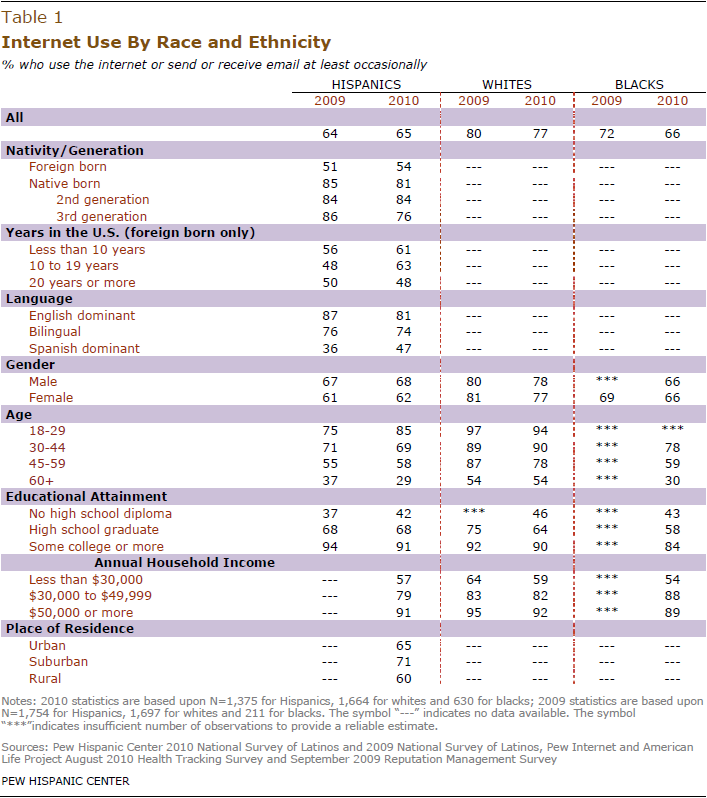In 2010, almost two-thirds (65%) of Hispanics were online, a rate comparable to that of blacks (66%) and significantly lower than the rate for whites (77%). The difference in internet use between Hispanics and whites is driven in part by the fact that Hispanics tend to have less education and lower incomes than whites. When education or income are controlled for, the ethnic differences in internet use disappear.
More than eight-in-ten (81%) native-born Latinos are online, compared with 54% of foreign-born Latinos. These rates of internet usage were unchanged from 2009. English-dominant Hispanics and bilingual Hispanics have relatively high rates of internet use, which are statistically unchanged from 2009 to 2010. In 2010, some 81% of the English dominant were online, as were 74% of bilingual Hispanics. In contrast, less than half (47%) of Spanish-dominant Hispanics were online in 2010. This is significantly lower than the rate of internet use among English-dominant or bilingual Hispanics, but it also represents a significant increase from 2009, when only 36% of Spanish-dominant Hispanics were online.
Younger Latinos are far more likely than older Latinos to be online. While 85% of Latinos ages 18 to 29 use the internet, this share drops incrementally for each subsequent age group. Some 69% of Latinos ages 30 to 44 are online, as are 58% of those ages 45 to 59 and 29% of those ages 60 and older. Among the youngest Latino adults, there is a significant increase in the share that go online—from 75% in 2009 to 85% in 2010.
Educational attainment is correlated with internet use. While just over four-in-ten (42%) Hispanics lacking a high school diploma are online, this share reaches 68% for Hispanics who are high school graduates. And for Hispanics with at least some college education, the share more than doubles, with 91% reporting that they go online.
Household income is also strongly associated with internet use.3 Some 57% of Latinos living in households with incomes under $30,000 a year use the internet. In comparison, almost eight-in-ten (79%) Latinos in households earning $30,000 to $49,999 annually are online. More than nine-in-ten (91%) Latinos in households with incomes of $50,000 or more are online. In contrast, place of residence is not linked to differences in internet use for Latinos. About two-thirds (65%) of Latino city dwellers are online, compared with 71% of suburban Latinos and 60% of those in rural areas.


